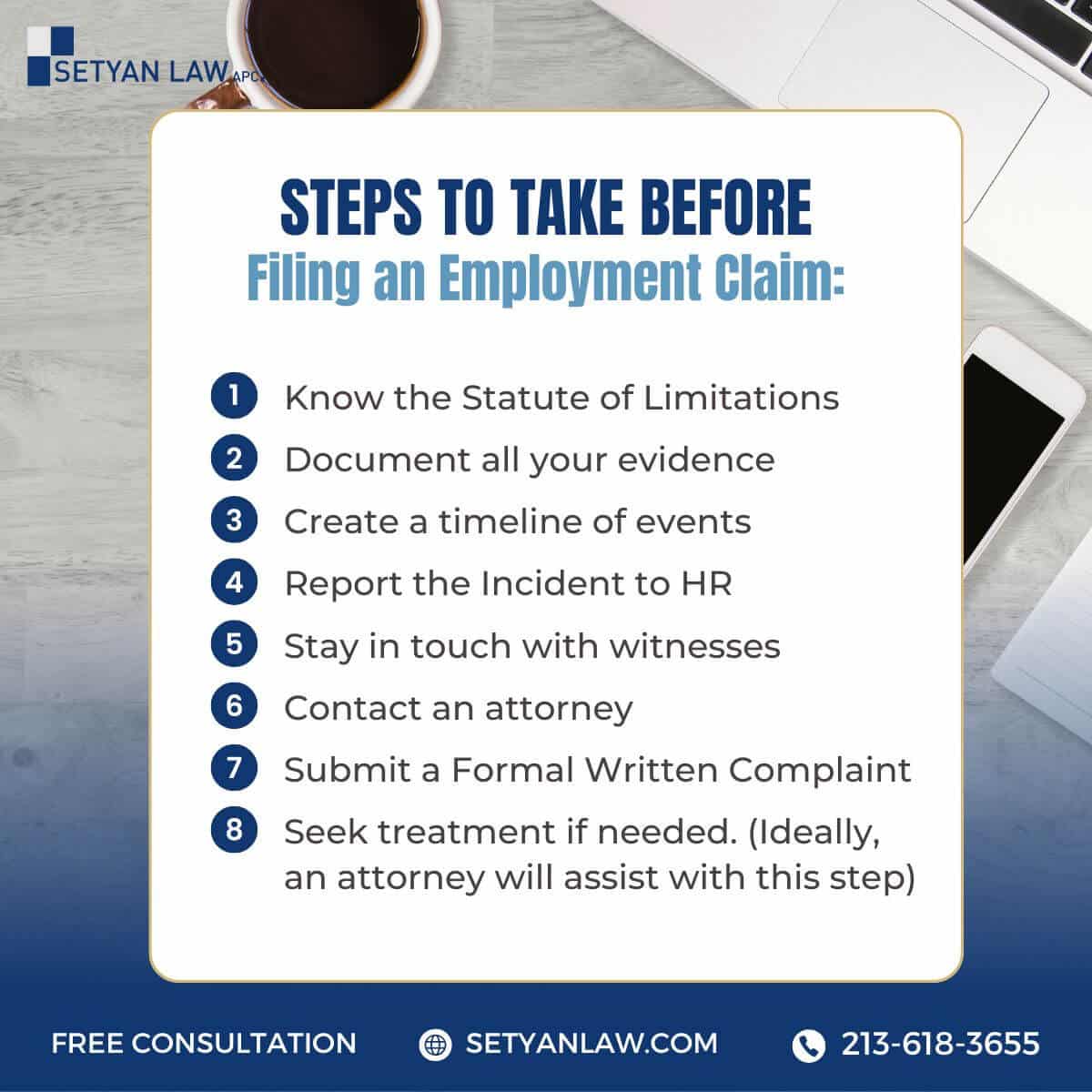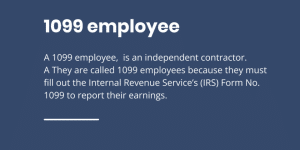Updated January 18, 2025
Steps for Successfully Filing a California Wage Claim
In the dynamic landscape of employment law in California, wage claims have emerged as a critical tool for workers seeking to recover unpaid wages, benefits, and other rightful compensation. Whether you are grappling with overtime violations, denied meal breaks, or misclassification as an independent contractor, understanding the process of filing a wage claim can be the key to securing the justice you deserve. In this comprehensive guide, we will delve into the intricacies of the California wage claim system, equipping you with the knowledge and resources to navigate this complex terrain effectively.
Laying the Groundwork: Understanding Your Rights as a California Worker
As an employee in the Golden State, you are entitled to a suite of protections under California labor laws. These safeguards cover a wide range of workplace rights, from minimum wage and overtime pay to meal and rest breaks, and even reimbursement for work-related expenses. Familiarizing yourself with these rights is the first step in recognizing when your employer has fallen short, paving the way for a successful wage claim.
Minimum Wage and Overtime Compensation
California’s minimum wage is set at a higher standard than the federal level, providing a baseline of fair compensation for workers. Additionally, the state’s overtime laws mandate that employees be paid time-and-a-half for any hours worked beyond the standard 40-hour workweek. Ensuring that you are properly compensated for all hours worked, including any overtime, is a crucial part of your wage claim.
Meal and Rest Breaks
California employers are required to provide their non-exempt employees with uninterrupted meal and rest breaks, depending on the length of the shift. Failure to do so can result in penalties that you may be able to recover through a wage claim.
Reimbursement for Work-Related Expenses
If your job requires you to incur expenses, such as mileage, equipment, or uniform costs, your employer is generally responsible for reimbursing you. Neglecting to do so can be grounds for a successful wage claim.
Navigating the Wage Claim Process
Once you have identified a potential wage violation, the next step is to navigate the wage claim process. This can be a complex and nuanced endeavor, but with the right guidance, you can increase your chances of a favorable outcome.
Filing the Wage Claim
The first step in the process is to file a wage claim with the California Labor Commissioner’s Office, also known as the Labor Board. This can be done online, by mail, or in person at your local Labor Commissioner’s office. Be sure to gather all relevant documentation, such as pay stubs, time records, and any correspondence with your employer, as these will serve as crucial evidence in your case.
The Settlement Conference
After filing your wage claim, the Labor Commissioner’s Office will schedule a settlement conference, where you and your employer will have the opportunity to resolve the dispute. This is a crucial stage, as a successful settlement can lead to a swift resolution of your claim. However, if an agreement cannot be reached, the case will proceed to a formal hearing.
The Wage Claim Hearing
If the settlement conference fails to resolve the issue, a hearing will be scheduled before a Labor Commissioner hearing officer. During this hearing, both you and your employer will have the chance to present evidence and testimony to support your respective positions. The hearing officer will then issue a decision, which can be appealed by either party if they are dissatisfied with the outcome.
Collecting on the Award
If the Labor Commissioner rules in your favor, the next step is to collect on the award. This may involve working with the Labor Commissioner’s Judgment Enforcement Unit to ensure that your employer complies with the order and pays the owed wages and penalties.
Navigating the Civil Court Option
While filing a wage claim with the Labor Commissioner’s Office is the most common route, you also have the option of pursuing your case in civil court. This approach can offer certain advantages, such as a longer statute of limitations and the potential to recover attorney’s fees. However, it also comes with its own set of complexities and challenges, making it advisable to seek the guidance of an experienced employment law attorney.
Drafting and Filing the Complaint
To initiate a civil court wage claim, you will need to draft and file a complaint with the appropriate superior court or federal district court. This process involves carefully outlining the details of your case and the relief you are seeking, which can be a daunting task without legal representation.
Navigating the Civil Court Proceedings
Once the complaint is filed, the civil court process will involve various stages, such as discovery, motions, and potentially a trial. Each of these steps requires a deep understanding of civil litigation procedures, making the assistance of an employment law attorney invaluable.
Recovering Attorney’s Fees
One of the key advantages of pursuing a wage claim in civil court is the potential to recover your attorney’s fees, which can significantly offset the cost of legal representation. However, the specific requirements and eligibility criteria for recovering these fees can vary, so it is crucial to work closely with your attorney to maximize your recovery.
Overcoming Common Challenges and Pitfalls
While the wage claim process in California is designed to protect workers’ rights, it is not without its challenges and potential pitfalls. Navigating these obstacles can be the difference between a successful claim and a disappointing outcome.
Avoiding Mistakes on the Claim Form
The wage claim form can be a minefield of potential missteps, with seemingly contradictory questions and the risk of inadvertently undermining your own case. Seeking the guidance of an experienced employment law attorney can help you avoid these pitfalls and ensure that your claim is presented in the most compelling and effective manner.
Dealing with Delayed Responses from the Labor Commissioner
Unfortunately, delays in the Labor Commissioner’s response to wage claims are not uncommon. If you find yourself waiting an inordinate amount of time for a response, it may be prudent to seek legal representation to help expedite the process and ensure that your claim does not fall through the cracks.
Preparing for the Hearing
The wage claim hearing is a crucial step in the process, and proper preparation is essential. This includes gathering all relevant evidence, preparing compelling testimony, and anticipating and addressing any counterarguments from your employer’s legal team.
Resources and Support for California Workers
Throughout the wage claim process, it is important to remember that you are not alone. There are numerous resources and support networks available to assist California workers in their fight for fair compensation and workplace rights.
- Community Organizations – Many community-based organizations and legal aid clinics offer guidance and assistance in navigating the wage claim process. These groups can provide valuable information, help with form-filling, and even representation in some cases.
- Consulting an Employment Law Attorney – While the wage claim process can be navigated without legal guidance, the complexities of employment law often make it advisable to seek the guidance of an experienced employment law attorney. These professionals can help you maximize your recovery, protect your rights, and ensure that your case is presented in the most compelling manner.
- Staying Informed – California’s employment landscape is constantly evolving, with new laws and regulations being introduced to protect workers’ rights. Staying up-to-date on these changes can help you identify potential wage violations and ensure that you are taking full advantage of the legal protections available to you.
Conclusion
Wage claims in California are a powerful tool for workers seeking to recover the compensation they have rightfully earned. By understanding your rights, navigating the claim process, and leveraging the resources available to you, you can take a proactive stance in the fight for workplace justice. Remember, you are not alone in this journey, and with the right support and guidance, you can emerge victorious in your quest for fair treatment and just compensation.
In cases of discrimination or wrongful termination, seeking can help protect an employee’s rights and hold employers accountable for their actions.
Call Setyan Law at (213)-618-3655 for a free consultation.






